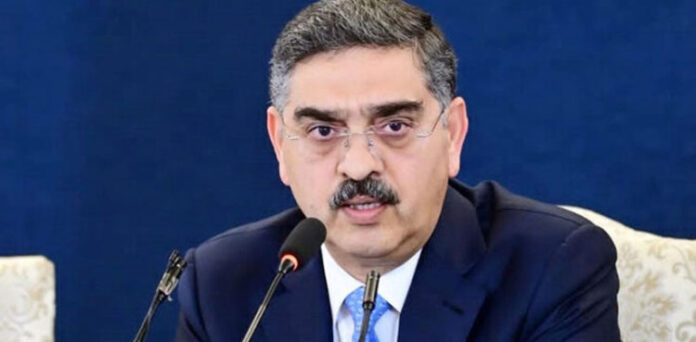The complexity of the wheat import procedure must be understood, according to Kakar.
He outlined government initiatives to reduce tax burdens, enable wheat purchases by the private sector, and raise money through import taxes.
The previous acting prime minister emphasised that the country’s wheat demand was taken into consideration while deciding whether to let private sector imports of wheat in order to keep supply and demand ratios in check.
Asserting that the Pakistan Bureau of Statistics (PBS) records corroborate his assertion, he attributed the country’s decline in inflation to the activities of the caretaker administration, while rejecting the accusations of corruption and crises.
The last acting prime minister disclosed during a question-and-answer session that he had pushed the private sector to benefit from the opening of wheat imports since it had an impact on the world supply chain.
In order to preserve the equilibrium of supply and demand, he thought it was a smart move for the PTI administration to issue Statutory Regulatory Orders (SROs) to import wheat during the COVID era.
The previous government had given the private sector permission to import wheat, he noted, therefore no new legislation were passed regarding it.
According to Kakar, the government should play a regulatory rather than an interventionist role in market dynamics.
The PDM government ended on August 8 and was replaced by caretaker government on August 9, according to Kakar during the first segment of the programme.
A thorough discussion about the alleged shortage of 3 to 4 million metric tonnes of wheat followed the estimation made at the Economic Coordination Committee (ECC) meeting that the nation would need 3 to 4 million tonnes of wheat to meet its requirements.
At the time, 1.4 million tonnes of wheat, including extra stock, were in stock. The process for addressing the wheat shortfall was examined, and it was disclosed that wheat is acquired through TCP, according to Kakar.
Following the scarcity, the process for resolving the wheat deficit was examined, with particular attention paid to obtaining wheat via the Trading Corporation of Pakistan (TCP).
The federal government launches wheat and fertiliser imports depending on information received from the provinces, as former Caretaker Prime Minister Anwar-ul-Haq Kakar further emphasised.
The earlier caretaker administration, he continued, set aside Rs 297 billion specifically for TCP’s purchase activities with the goal of keeping a 1 million-tonne wheat strategic stockpile.
The International Monetary Fund (IMF) has expressed concerns about TCP’s procurement practices, and there have been complaints made about the organization’s methods. TCP is the source of wheat.

